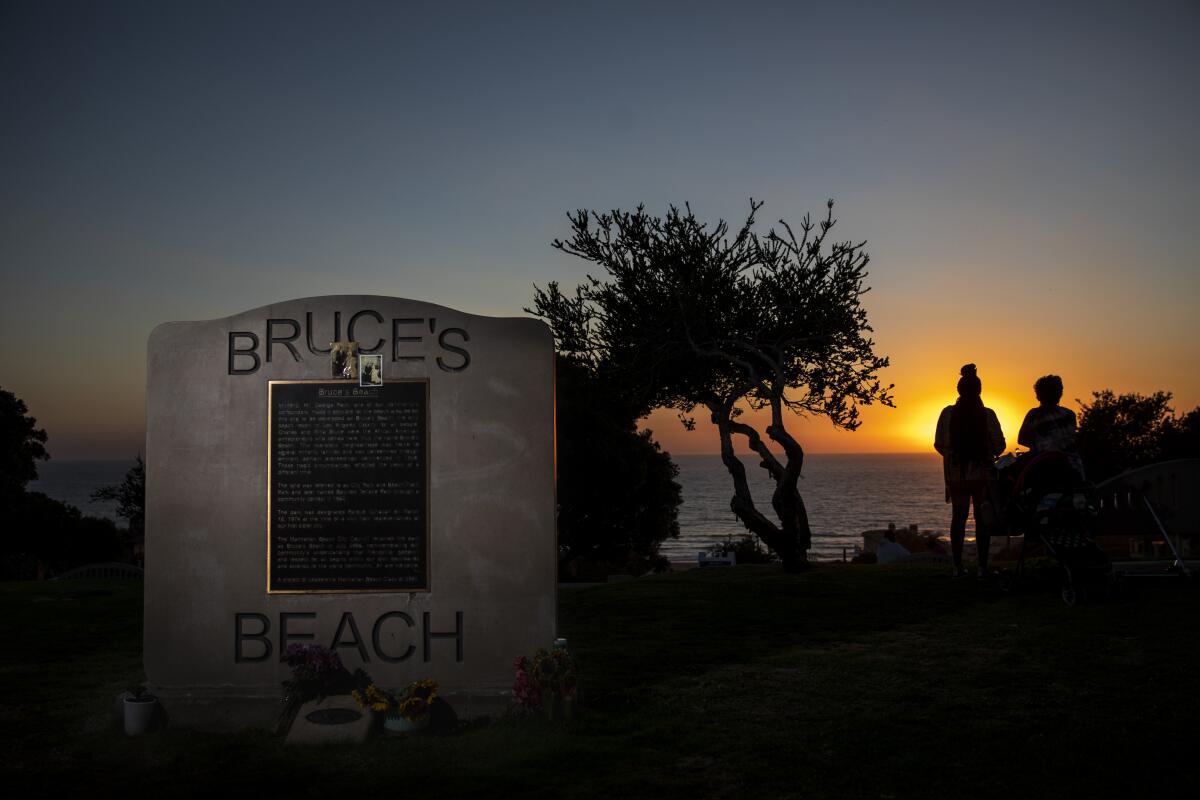Letters to the Editor: What anti-Black discrimination looked like to a child in the 1940s

- Share via
To the editor: As a young child growing up in southern West Virginia in the late 1940s, I thought that Black people were separated from whites because they were special. They camped out in those “shanty houses” across the river, and I was sure they really lived somewhere else in a house nicer than mine. (“‘We are finally here’: Plan to return Bruce’s Beach wins unanimous approval,” June 28)
We white kids couldn’t ride in the back of the bus because the Black kids were going to their special school in the big town nearby, and they got to sit back there. My friends and I couldn’t go to our special Catholic school because our families couldn’t afford the cost. The movie theater’s balcony was closed to me and my white friends because only the special people could sit up there.
Time brought the ugly truth.
Not only had my Italian immigrant grandparents suffered discrimination after coming to America; the people I called “special” were living a life, for many years, bearing heartbreaking discrimination.
Thankfully, now, the Bruce Family is truly special as they regain their property in Manhattan Beach, stolen from them years ago.
Jo Ann Goff, Thousand Oaks
..
To the editor: Kudos to the L. A. County Board of Supervisors for unanimously approving the return of Bruce’s Beach to the heirs of a Black family, Willa and Charles Bruce.
Although many deserve credit for bringing this complicated process to a successful closure, I would like to give kudos to L.A. County Supervisor Janice Hahn for taking the lead. Her father, former L. A. County Supervisor Kenneth Hahn, an ardent supporter of civil rights, would be proud.
Ann C. Hayman, Westwood





